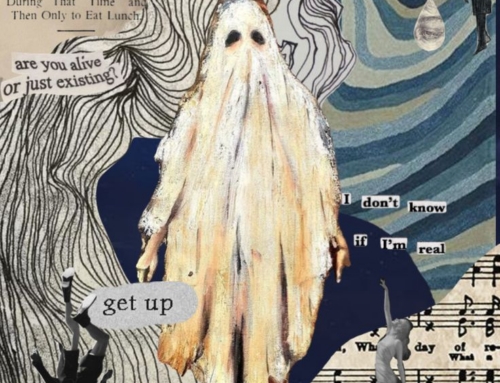One of the main themes coming out of the new Catholic gimmick called “synodality” is a call to jump on the secular Diversity, Inclusion and Equity bandwagon. Check out this video (the one that begins with a picture of a forest) to see what I mean.
The emphasis is on “a church that is open to everyone” and a church that celebrates diversity and strives for equity. Pope Francis has made compassion for the poor and marginalized a hallmark of his papacy, and that is certainly part of espousing a compassionate gospel and a church that ministers to the needy.
However the enterprise opens up a whole range of questions. Firstly, hasn’t the Christian Church always been “open to everyone”? From the Acts of the Apostles onward the Christian Church has been the church of the underdogs, the poor, the slaves, the prisoners and the outcasts. Therefore the pope’s call is nothing new. A call for diversity is welcome, but again, the Catholic Church worldwide is (arguably) the most diverse of any human organization. She has a spread into every continent and culture and she has adapted and grown wherever she is planted. It is difficult to imagine any global organization that is more diverse and welcoming to every race, every cultural manifestation, every level of social class and every human condition. Unlike most Protestant churches and every secular organization, the Catholic Church transcends cultural, historical, racial and ethnic barriers. Sure, we still have a ways to go, but a constant banging of the drum on diversity and inclusion when the Catholic Church is already a wonderful example of global inclusion and diversity indicates that something else is afoot and that this is not really about genuine diversity and inclusion.
Instead it is an attempt by progressives to impose the secular agenda onto the church so that we might include those who wish to bring their own philosophies and lifestyles into the Catholic Church and force Catholics to accept what is inimical to the Catholic religion. In other words, to destroy the church from within.
What is missing in the call for diversity, inclusion and equity is any practical ways of bringing this about. What I want to know is “How Do I do that?” In a discussion on this topic not long ago I asked an expert on the matter how exactly one was to go about this on the parish level. He had no answer. I pressed him. “What specific actions do you propose that we do other than hold a meeting to talk about the problem (assuming a problem actually exists)? He had no suggestions.
This is why the talk, talk, talk about diversity, inclusion and equity (on the one hand) troubles me and (on the other hand) doesn’t trouble me at all. It troubles me because it seems to miss the point entirely. It does not trouble me because I suspect it is all not much more than chin wagging of the chatterati…that it is not much more than a project of the PR department…a matter of window dressing.
The fact of the matter is, I had a perfectly good idea about how to bring about more diversity, inclusion and equity. It is something called “evangelization.” If we were to return to basic Christianity and live that faith radically (as I point out in my book Beheading Hydra) the problems of diversity, inclusion and equity would take care of themselves. Let me explain: If we more faithfully preached the old, old story of a sinful humanity in need of a savior and called people to repent and be baptized and to enter into the fullness of the Christian faith in the Catholic Church why then the church would be more inclusive. Everyone would be welcomed to walk in the way of the One who said “I AM the Way.” By evangelizing the church would become more diverse and then as the people of God lived out their life of faith those who followed the Lord would bring about a more equitable society.
Here is a story that illustrates my point from the grass roots level. Some time ago I met with the pastor of the local Church of Christ which is around the corner from our Catholic Church. He was a fit young black guy who works full time as a carpet fitter as he completes his theological training online and on the weekends. I invited his congregation to get involved with our St Vincent DePaul food pantry. His folks are predominantly black Protestant Christians and our food pantry clients are predominantly black. It was an attempt on my part to build up community relationships and a positive ecumenical partnership. Here is what he said:
Brother, we don’t give people stuff. We don’t give people stuff. We give them the Bread of Life. Salvation through the Lord Jesus Christ. Then if they are down and out, if they are unemployed or addicted or homeless they soon don’t need us to give them stuff. They join our church, then before long they have made some friends–maybe some people who were once on drugs or alcohol and are free from that. Then they start to get better. Then some of the brothers and sisters in our church will maybe help them find a place to live and somebody else offers them a job. Maybe they get interested in one of the young women, and before long they are married and have a good job and they stand on their own two feet. So we give them Jesus and we don’t give them stuff because if we give them money and stuff they will need more tomorrow, but if we give them the Bread of Life and the Water of Life they will never be hungry and thirsty again.
In other words, the church should do what the church does–which is to worship the Lord in the Beauty of Holiness and to preach the saving gospel of Our Lord Jesus Christ. Just as my Church of Christ brother sees that the social needs are eventually solved by a soul turning to Christ, so the need for diversity, inclusion and equity are solved–not by artificial impositions of racial quotas or awkward recruitment plans that patronize people of color or by trendy gimmicks by PR experts at the diocesan or Vatican level or by learned papers by jumped up, overpaid academics who hold conferences on the subject.
Instead the problems would be solved by a faithful preaching and living of the gospel. What is most disturbing in the present emphasis on the synodal way of inclusion and diversity is not the need for inclusion and diversity–everyone would agree that we should all be nice to one another–but what is disheartening is that any mention of the basic, historic Christian gospel is totally absent.
Should we welcome everyone? Of course. Everyone is already welcome…welcome to come in humble repentance to the Lord Jesus Christ with the plea, “Lord Jesus Christ Son of the Living God Have mercy on me a sinner!” What do we do, however, with the difficulty of having an open door but nobody actually turns up? The problem premise is “all are welcome” is the assumption that everyone actually wants to be welcomed. I can remember a telling interview once with a young man who was living an active life in the LGBTQ sub culture. He turned up at some sort of LGBTQ+ church conference and the interviewer asked him, “So now that the church is opening up to gay people does this make you wish to start attending church?” He laughed and said, “You must be kidding. I couldn’t think of anything worse.”
So while it is a nice thing to hang out a sign saying, “All are welcome” don’t be surprised if the pews remain empty.







Leave A Comment
You must be logged in to post a comment.